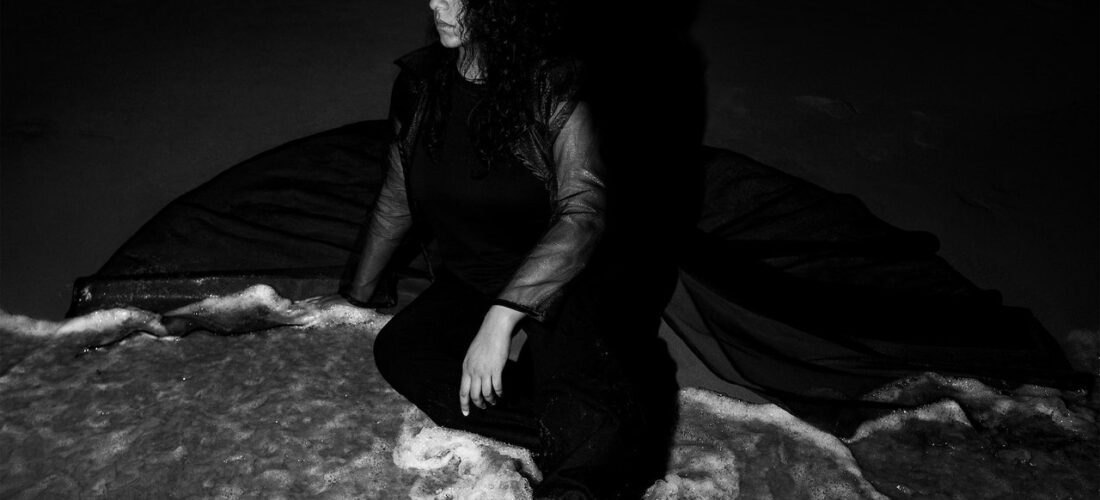It isn’t easy to say something new with “Autumn Leaves.” The 1945 torch song is surely one of the most performed standards in the jazz repertoire, not only by the likes of Miles Davis and Nat King Cole, but also by the beginners taking lessons in the back rooms of your local store music store: sitting down at a piano to play its wistful minor-key melody is a bit like the jazz version of picking up an electric guitar and going straight for “Smoke on the Water.” Putting your rendition on a new album in 2024 is either a conservative move or a bold one. For Arooj Aftab, the Brooklyn-via-Lahore singer and composer who moves freely between jazz, folk, and Hindustani and Western classical music, it is decidedly the latter.
Aftab’s “Autumn Leaves” comes early on Night Reign, her fourth solo album, and renders it as a ghostly incantation. Metallic percussion clatters in the background. Linda May Han Oh’s upright bass lines follow Aftab’s vocal like an elongated shadow follows the protagonist of a noir film. Without a chordal instrument to support it, the familiar tune becomes skeletal and spooky; Aftab’s chromatic embellishments make it spookier. Her take on “Autumn Leaves” is emblematic of the way she works: drawing from tradition while at the same time estranging it, stripping away clichés and stock devices to reveal the mysterious longing that gives the old poems and songs their lasting power.
Two of Night Reign’s songs take their words from Mah Laqa Bai Chanda, the 18th-century poet who was the first woman to publish a collection of work in Urdu. Other lyrics are Aftab originals, in both English and Urdu. Still another is based on an offhanded poem that the singer’s friend, the Pakistani actress Yasra Rizvi, posted to Instagram. Aftab unites her source material’s mix of the centuries-old and the ephemeral with her wondrous voice, sometimes soaring but just as potent in its husky lower register. And with her compositions, which patiently gather and dissolve, favoring long arcs of development over sudden dynamic shifts. Though Night Reign has plenty of distinct zones—grungy bass guitar takes the lead on “Bolo Na”; Auto-Tune drapes Aftab’s voice on “Raat Ki Kai”—as a whole it can have the feeling of a single sweeping piece of music.
Aftab, who produces her albums herself, deserves as much credit for her composing and arranging as she does for her singing. Night Reign’s palette is similar to Vulture Prince, her 2021 breakout album, and features many of the same players along with a few new ones: harpist Maeve Gilchrist, whose instrument is second only to Aftab’s singing as the signature sound of her music; Aftab’s Love in Exile bandmates, jazz piano star Vijay Iyer and multi-instrumentalist Shahzad Ismaily; guitarists Kaki King and Gyan Riley; flautist Cautious Clay; percussionist Jamey Haddad; an unlikely Wurlitzer cameo from Elvis Costello. Their instruments drift like a breeze of dandelion seeds, in the same general direction but with independent and unpredictable paths between one point and another. Even Moor Mother, whose stentorian spoken-word is one of the most distinctive sounds in left-of-center music, becomes just another element of the melange when she arrives to deliver a guest verse on “Bolo Na,” the percussive edges of her delivery swept up in the song’s half-time rhythmic churn.
